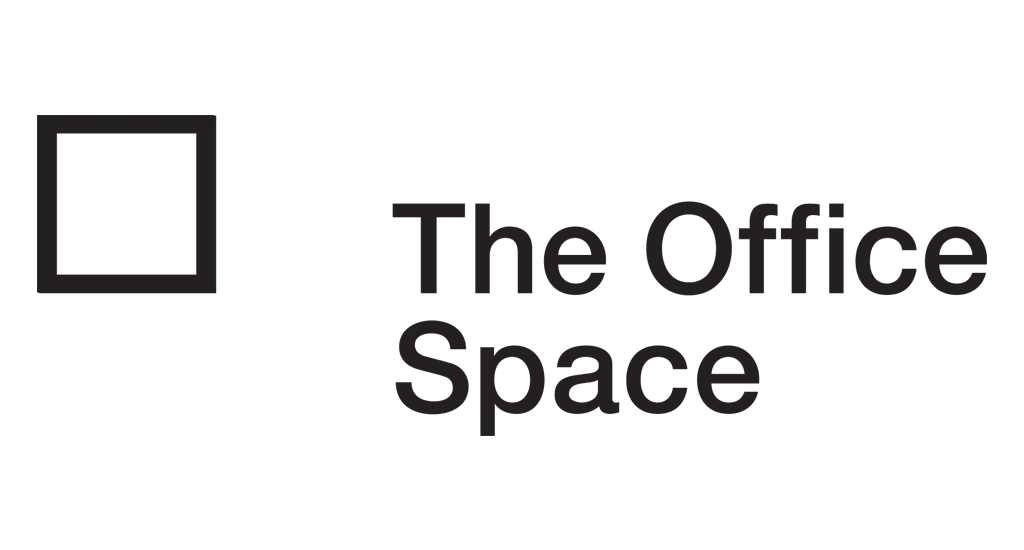From Trump to Fyre Festival, it seems lying has hit mainstream. Consumer trust across all institutions and industries is an all-time low, and scandals such as the recent banking royal commission show we are wise to be on guard. Charlatans, conmen, imposters, raconteurs and liars don’t just pedal their half-truths in used car lots or carnivals. These wolves in sheep’s clothing have infiltrating the very upper echelons of government, society and business.
The Erosion of Trust
Lying has become our new normal. Experts are dismissed, alternative facts are freely offered, and, thanks to the social media, anyone can propel anything into the public domain. In this new media outlet identity outranks credibility, and emotion trumps measured discourse. We now have a whole new vernacular to describe the current situation where spin, rhetoric, obfuscation, or downright lying are used to cloud the truth or spin an alternate reality. In 2016 Oxford Dictionaries declared “post-truth” as its international word of the year.
Oxford Dictionaries’ president Casper Grathwohl said: “Fuelled by the rise of social media as a news source and a growing distrust of facts offered up by the establishment, post-truth as a concept has been finding its linguistic footing for some time.”
It sums up our current climate where “objective facts are less influential in shaping public opinion than emotional appeals.” (Oxford Dictionaries) “Truth decay” is another term now used to reflect the epidemic erosion of trust and the diminishing role of facts and analysis in society.
RAND, a non-profit organisation, employing almost 2,000 masters and doctorate qualified staff, uses rigorous research and analysis to help improve policy and decision making. RAND attributes truth decay to the blurring of the line between opinion and fact, which it says is compounded by cognitive biases, social media’s disruption of the information environment, the prevalence of opinion and anecdote over fact, and declining trust in respected sources of facts.
The Epidemic of Distrust
The litmus test of collective trust is the longstanding Edelman Trust Barometer. Since 2000 it has surveyed tens of thousands of people across dozens of countries about their level of trust in business, media, government, and NGOs.
In 2017, for the first time in ever, the study found a decline in trust across all four of these institutions with the average level of trust in all four institutions combined was below 50%. We are living in an era of backlash against authority. 71% of survey respondents said government officials are not at all or somewhat credible, and 63% said the same about CEOs, a 12% drop from 2016 [1]. By comparison, 60% of respondents trusted “a person like yourself” on a par with trust in a technical expert or an academic. It’s not hard to see why this might be the case.
In Australia alone we have had the banking Royal Commission, the Royal Commission into child sex abuse, and the current Victorian Police’s Royal Commissioninto the use of underworld informants. Our institutions and the people placed in positions of trust and power are failing us. Add to this the conflicting information we get from experts, research papers, and organisations – perhaps in no area more so than food (should we ditch gluten? Is diary bad? Should we adopt a paleo or a vegan lifestyle?) – and it’s exceedingly hard for anyone to decipher the ‘truth’.
The 21st century has been coined the Information Age however it seems we are living in a Misinformation Age. We are swamped with so much information through so many sources that we don’t know where to turn. The bedrock institutions that once lighted the way have either failed us through scandal, conflict or impotence.
Truth and Politics
There is perhaps no greater illustration of overt lying than Donald Trump. George Washington famously said “I cannot tell a lie” however it seems the 56thPresident of the United States cannot tell the truth. We have entered an age of post-truth politics,” laments the New York Times.
According to a tally kept by the Washington Post’s fact-checking team, there have been more than five thousand lies since Trump took office. According to Daniel Dale, a meticulous reporter from the Toronto Star, Donald Trump told an average 20 lies a day between 15 September and election day.
PolitiFact has found that about 70 percent of Donald Trump’s “factual” statements actually fall into the categories of “mostly false,” “false” and “pants on fire” untruth. Glenn Kessler’s highly reputable “Fact Checker” column in the Washington Post evaluated statements made by Trump during the campaign and assigned 64 percent of them with “Four Pinocchios” (the worst rating).
By contrast, statements by other politicians get Four Pinocchios 10 to 20 percent of the time. This, in itself, is reprehensible. Would we let our children, friends or colleagues lie 20% of the time? Donald Trump has been lying for so long now, and on such a regular basis, that mirth rather than outrage seems the collective knee-jerk reaction. That is playing into his hands. Trump’s political methods ultimately rely on the appeal to emotions, such as fear and anxiety, and to personal beliefs over objective truth. Moreover, his victory was secured with blatant lies and misleading rhetoric. The same can be said for the other political maelstrom of the last few years, Brexit.
On 23 June 2016 British voters opted to leave the EU by a slim majority after a referendum campaign that will be best remembered for the lies told by leading campaigners. Both ‘leave’ and ‘stay’ campaign sides were accused of running deeply flawed campaigns characterised by misleading or false claims. In politics, we have come to expect a level of spin or downright propaganda to support a party’s position. The democratic process is based upon citizens being able to parse fact from fiction and making an informed decision.
The issue, as we have seen with Brexit and the presidential elections, was the level of misinformation dressed up as fact, or isolated to sway the voter to a particular position. One of the most well recognised ‘facts’ in the campaign was that the UK sends £350 million to the EU each week. Each side was accused of misusing statistics, and interpreting data to suit their own agenda.
Truth and the Media
The media has long been seen as the bastion of truth telling, broadcasting the truth through facts and research, and blowing the whistle on those in society who are flagrantly disregarding it. Historically the press and news media, termed the Fourth Estate for their distinction from the other three estates of the realm (the clergy, the nobility and the commoners), has wielded significant indirect social influence. Through explicit advocacy and implicit ability to frame political issues, the press has been a thorn in the side of those seeking to deceive and delude. But it seems its influence is waning.
In the US, according to Harvard University’s Nieman Lab, some 360 newspapers urged their readers to vote for Hillary Clinton with only 11 supporting Trump. Clearly, voters didn’t take much notice of what mainstream media had to say. Furthermore, Brexit has shown that media misinformation and prejudice can have huge impact on public sentiment. Rather than maintaining impartiality and exposing the untruths, the British press fuelled ignorance and hysteria, perpetuating, or in some instances creating, overtly prejudiced and unverified reports.
Lord Justice Leveson, the same judge who led the Leveson Inquiry to look at the culture, practices and ethics of the press in the wake of the 2011 News of the World phone hacking scandal, said that when it comes to the EU, “there is certainly clear evidence of misreporting”. In Media, Lies and Brexit, Ethical Journalism Network reporter Gareth Harding reported that the UK’s two top-selling papers, The Sun and the Daily Mail, were “rabidly anti-EU, reporting on its affairs with a mixture of hostility, mockery and contempt.” He goes on to reveal the Daily Telegraph, the fourth best-selling paper in the UK, feed its readers a daily diet of negative news about the European Union, while the sixth biggest, the Daily Express, led a “crusade” against British membership. To British TV reporting, and an April 2016 report by Zurich-based analysts Media Tenor concluded that only 7% of BBC coverage of the EU was positive and 45% negative. Whether through ignorance and sloppy reporting, the imperative to emote to sell more papers, or reporter prejudice, the UK media is, in no small way, culpable for the current climate of confusion and distrust.
Truth and Social Media
There is no bigger post-truth player than social media. The 2018 Pew Research Center survey revealed that 67 percent of Americans report getting some of their news from social media. 74 percent of Twitter users get theirs in tweet form, while 68 percent of Facebook users read news in their timelines. YouTube and Snapchat have also seen significant rises in the number of users turning to their platforms for news, while Reddit, Instagram, Tumblr, and LinkedIn are all regularly frequented news sources for users.
Whilst the same research reveals that 57% expect the news they see on social media to be largely inaccurate, the influence of social media may be more insidious. As in real life, we tend to surround ourselves with people that share our interests and opinions. Our circles then shape our opinions. 83% of people trust the recommendations from family and friends [2]. This leads to us creating our own realities within our social network realities. There is, however, a much more sinister angle to social media’s influence on news and politics. Both Trump and Leave EU campaigns employed the services of the now disbanded Cambridge Analytica (CA), a company that combined data mining and data analysis with strategic communication to wage a political spin campaign of unprecedented reach and effect.
The personal data of approximately 87 million Facebook users was acquired illegally via Cambridge Analytica and then used to wage a highly automated, targeted and persistent campaign to support Trump and Leave parties and disparage their opposers (namely Hillary and the Pro EU stay campaigners). 40-50,000 ad variants were used every day, continually measuring responses and adapting to suit the audience to completely overwhelm the opposing arguments (by as much as 5 times according to Vox). The success of ad targeting saw digital advertising spend (social, video, email and mobile ads) reach $1.4 billion during the 2016 US election. Up 789% on 2012 [3]. It would appear that democratic process is greatly influenced by the side with the means to finance and distribute the most plausible lies through social media.
When Truth isn’t enough
Thankfully, on both sides of the Atlantic, ethical journalists are fighting back to respond to the political lies and media misinformation of the Brexit and Trump experiences. Investigative journalism is reborn as news rooms recalibrate to counter the obfuscating rhetoric of “fake news”.
We have also seen a proliferation of fact-checking sites such as the BBCs Reality Check, aimed at getting to the “facts behind the claims in the EU referendum campaign and beyond”, and Politifact’s Trump-o-meter follows the promises made by President Donald J. In this post-truth environment, the role of journalism is more important than ever. Journalists must hold power to account, question untruths, conduct rigorous research rather than perpetuate misinformation, and not allow personal prejudice to cloud their discourse – unless within the boundaries of an Op-Ed piece. In other words, to be impartial and above reproach. Even so, in many cases, the truth is simple not enough.
The Nobel Prize winning work of psychologist and best-selling author (Thinking, Fast and Slow) Daniel Kahneman PhD reveals that our reasoning is riddled with cognitive bugs and biases. Kahneman and his lifelong friend, collaborator, and fellow Nobel Laureate Amos Tversky are considered the godfathers of “behavioural economics”, having transformed how we think about decision-making.
In a series of experiments in the 1970’s Tversky and Kahneman found that, when faced with uncertainty and misled by intuitions, people responded with consistent biases which could be traced to mental shortcuts, or what they called ‘heuristics’. Says Kahneman, “Confirmation bias comes from when you have an interpretation, and you adopt it, and then, top down, you force everything to fit that interpretation.” It is this “confirmation bias” that today spreads mistruths like wildfire through new media platforms simply because these social soundbites confirm our personal positions or agendas.
Hate Trump? Then you are more likely to on-share a post of his latest gaff or offending rhetoric before even checking the credibility of the source. What makes this even harder is that such juicy ‘news’ gains momentum and ‘goes viral’ and the story sticks long after corrections may have been made.
The Truth Solution
Intellectual freedom and freedom of speech is the very definition of a democratic society. Yet our right and, indeed, our privilege to believe anything and to say anything must come with a sober dose of accountability and responsibility.
American sociologist, diplomatand political adviser to Republican U.S. President Richard Nixon, Daniel Patrick Moynihan famously said, “You are entitled to your own opinion, but you are not entitled to your own facts.” The starting point must be with the weighing of evidence.
Tolerance, open mindedness and an intellectual rigour or, at the very least, a mild curiosity about the quality and quantity of the evidence you are accepting as truth should be a pre-requisite for holding on opinion. If you are prepared to look beyond the digital detritus of pop culture tidbits, shock jock pundits, viral memes and downright dangerous human prejudices, the internet can actually be out best ally in testing the validity of claims.
Visit this month’s Guide article for our top five tips for building your own bulls**t detector. Beyond this, cognitive bias show that our own faults of reasoning require vigilance.
The first half of the solution is to step out of our own digital and real-life echo chambers and start reading and consuming news and information more widely (there are now numerous content News 360 or eScience that do the running around for you) and more deeply (Foreignaffairs.com is the leading leading forum for serious discussion of global affairs).
The second half requires a greater level of self-awareness. Rather than selective engagement with information and outright resistance of facts that may run counter to one’s beliefs, we should get comfortable with being uncomfortable and not knowing so that we may apply intellectual reasoning.
According to Professor Nick Einfeld, Professor of Linguistics at the University of Sydney and head of the Post-Truth Initiative, we must “maintain social norms by which we agree to be accountable to evidence and other elements of rational argumentation. This in turn has given us reason to rein in our more instinctive, biased patterns of reasoning”.
There is great learning or, at the very least, a lesson in empathy in seeking out alternative points of view and parsing the having to deal with possible inconvenient ‘truths’. As the post-truth milieu goes mainstream, more citizens are taking up intellectual arms and demanding facts, authenticity and veracity. One can always look to history, which may indicate that this confounding epoch won’t last. As Buddha is said to have said “Three things cannot long be hidden: the sun, the moon, and the truth.”
[1] https://hbr.org/2017/01/survey-peoples-trust-has-declined-in-business-media-government-and-ngos
[2] https://www.nielsen.com/eu/en/press-room/2015/recommendations-from-friends-remain-most-credible-form-of-advertising.html [3] https://adage.com/article/media/2016-political-broadcast-tv-spend-20-cable-52/307346/






